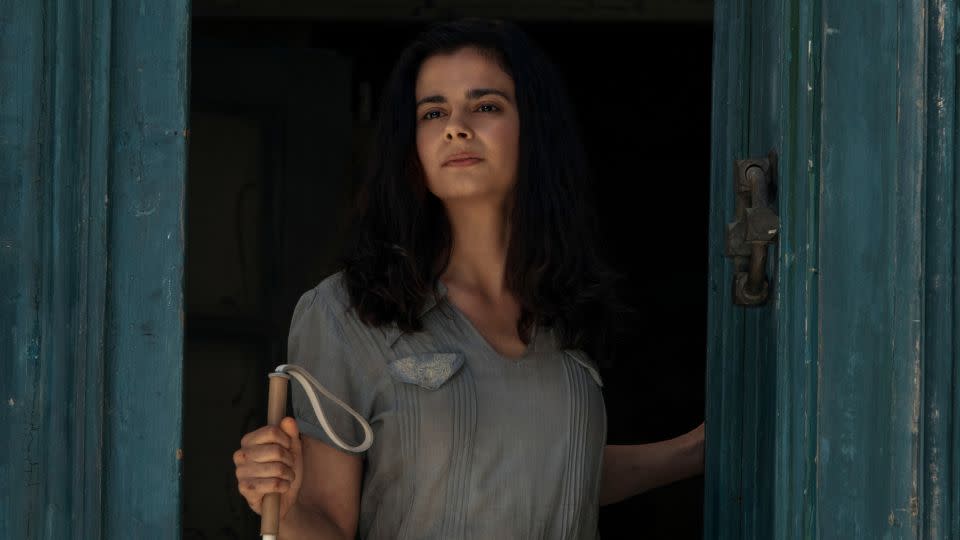‘All the Light We Cannot See’ earnestly turns the prize-winning book into a dim miniseries

Everything about “All the Light We Cannot See” – from the World War II backdrop to the starry supporting players to having a Pulitzer Prize-winning novel as source material – screams prestige, which makes the lifelessness of this four-part Netflix limited series more pronounced. Handsomely done and strangely hopeful, it has all the hallmarks of an ambitious misfire.
Although Mark Ruffalo and Hugh Laurie lend star power to the cast, the story focuses on Marie-Laure (Aria Mia Loberti, with Nell Sutton playing her in flashbacks as a girl), a blind young woman who, near the end of the war, transmits messages to the resistance via radio broadcasts. Her bravery makes her a target for a Nazi officer, Von Rumpel (Lars Eidinger), eager to find her, and especially, an artifact he believes to be in her possession.
Said officer is also the boss of Werner (Louis Hoffman), a conflicted young soldier forced to serve the Third Reich, whose genius happens to be his ability to trace such illicit broadcasts.
There’s considerably more to it than that, including the Gestapo officer’s preoccupation with the whereabouts of the legendary diamond once overseen by Marie-Laure’s father (Ruffalo), a museum curator, reputed to have supernatural qualities. Laurie, meanwhile, plays the girl’s uncle, her lifeline as she navigates a war-ravaged neighborhood.
Written by Steven Knight (whose credits include “Peaky Blinders” and “Eastern Promises”), the project was directed by Shawn Levy, a name generally associated with lighter (and more overtly commercial) fare like “Free Guy,” the upcoming “Deadpool 3” and “Night at the Museum.”
Shooting in France and Hungary, Levy brings sweeping scope to the narrative, but approaches the material with an almost exaggerated sense of earnestness, making the episodes feel more labored than uplifting in exploring how people can forge unlikely connections in the worst of times, which is clearly the objective. While Werner provides that sense of humanity persisting in the face of horror, Von Rumpel is evil to the point of being cartoonish, even by the standards of old black-and-white World War II movies.
Loberti and Sutton are both legally blind, a departure from past casting decisions that gives Netflix and the producers license to refer to the project as “groundbreaking.”
Those actors are the strongest part of this production and, alas, the only ground that “All the Light We Cannot See” breaks as it sheds light on the gap between good intentions and good drama.
“All the Light We Cannot See” premieres November 2 on Netflix.
For more CNN news and newsletters create an account at CNN.com


